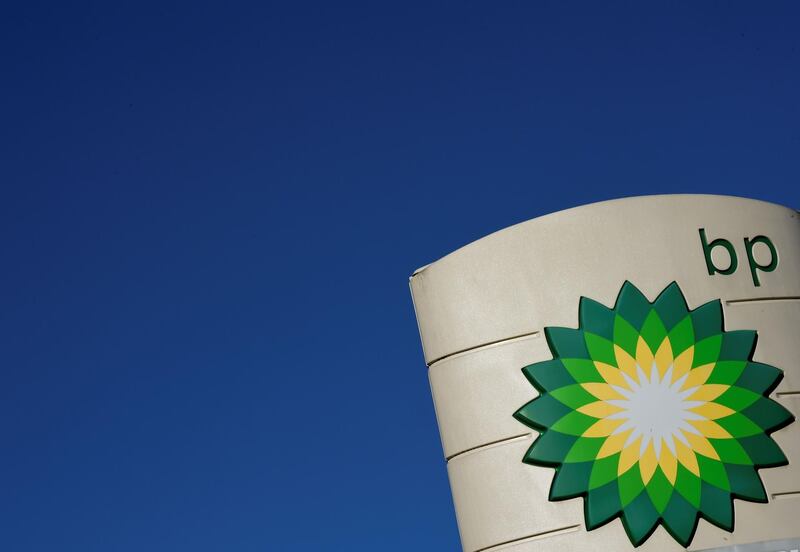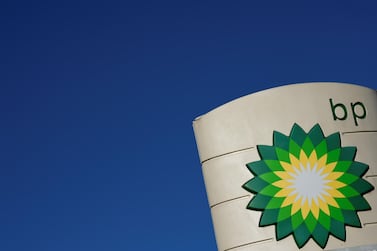Oil giant BP will write off as much as $17.5 billion (Dh64.3bn) as the company revises down its long-term energy price assumptions in the wake of the Covid-19 pandemic.
“With the Covid-19 pandemic having continued during the second quarter of 2020, BP now sees the prospect of the pandemic having an enduring impact on the global economy, with the potential for weaker demand for energy for a sustained period,” the company said in a statement to the London Stock Exchange on Monday.
BP said there is a growing expectation that “the aftermath of the pandemic will accelerate the pace of transition to a lower carbon economy and energy system, as countries seek to 'build back better' so that their economies will be more resilient in the future”.
The lowering of its long-term price expectations, and a review of its intent to develop some of its exploration intangible assets “will lead to non-cash impairment charges and write-offs in the second quarter, estimated to be in an aggregate range of $13bn to $17.5bn post-tax,” the company said.
BP revised its long-term assumptions for Brent crude down to $55 per barrel and for Henry Hub gas (from 2021-2050) to $2.90 per million British Thermal Units.
Brent crude prices dropped from highs of almost $69 per barrel in January to $19.33 as demand buckled due to movement restrictions put in place to stop the spread of Covid-19 and an unravelling of an agreement to cut production. Prices recovered to $40 per barrel last week as the Opec+ alliance renewed a commitment to production cuts with a tighter enforcement regime.
“We have reset our price outlook to reflect that impact and the likelihood of greater efforts to 'build back better’,” the company's chief executive Bernard Looney said.
“We are also reviewing our development plans. All that will result in a significant charge in our upcoming results, but I am confident that these difficult decisions – rooted in our net zero ambition and reaffirmed by the pandemic – will better enable us to compete through the energy transition."
BP launched a new strategy under Mr Looney in February, where it set a target of becoming a ’net zero’ carbon emissions company by 2050, which involves a restructuring of its operations that could see up to 10,000 jobs, or about 14 per cent of its workforce, cut.
“Sales could accelerate as the prospects of a global recovery in oil demand are being dashed by worries of a second wave contagion. If this is the case, an extended period of travel restrictions and slower industrial activity could send the price of barrel down to [the] $20 level,” said Ipek Ozkardeskaya, Senior Analyst at Swissquote Bank.
The company had $130.2bn of assets at the end of March, of which oil and gas properties made up $88.6bn and exploration intangibles $14.2bn.








